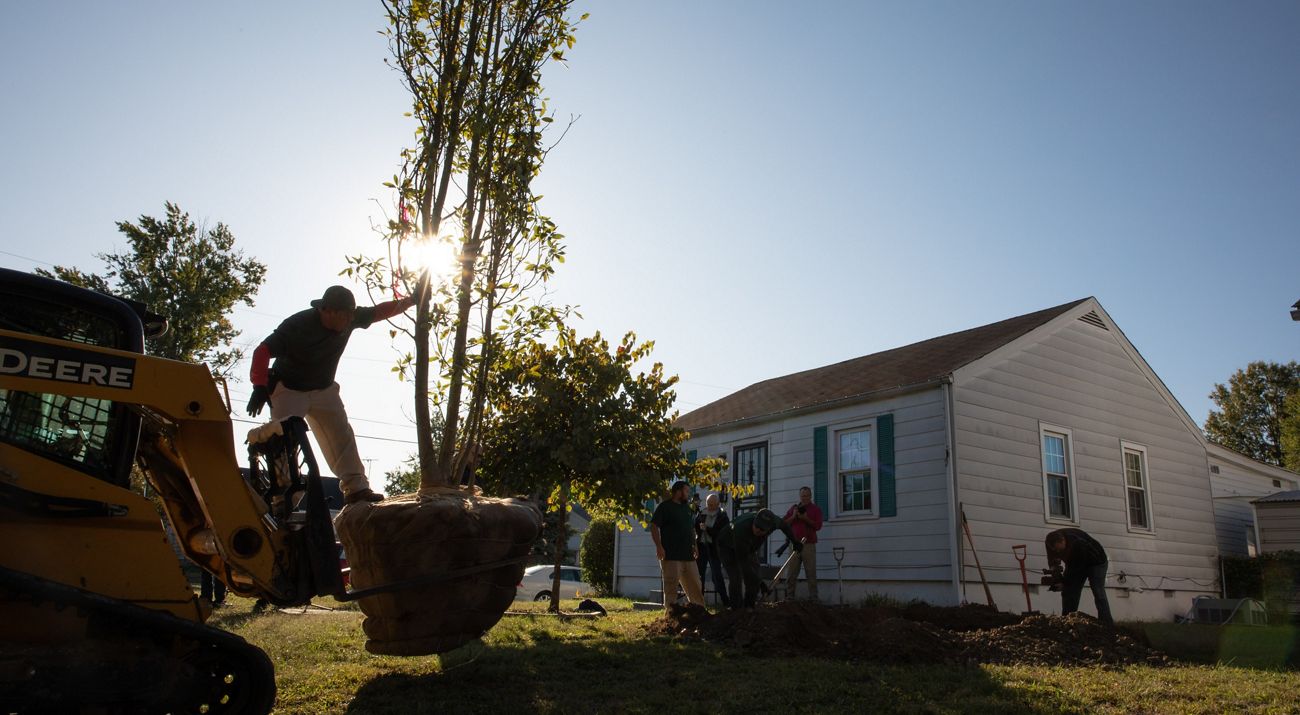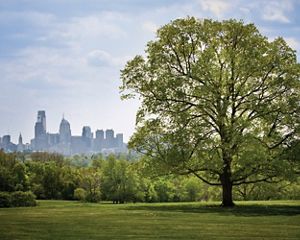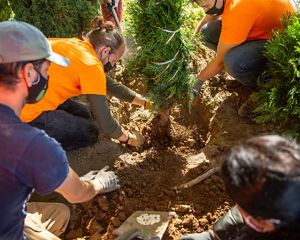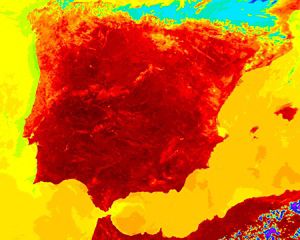Cities are often the missing piece of the conservation puzzle. While The Nature Conservancy (TNC) has worked for years to protect natural landscapes and the species they support, urban environments are often forgotten when it comes to safeguarding the places we love. Yet, cities represent some the fastest growing and most densely populated spaces in the nation. As these urban centers continue to develop, nature is often pushed aside for grey infrastructure – such as detention basins, pipes, and treatment plants – resulting in inequitable access to parks and nature, urban heat islands, increased pollution levels and flooding, and declining habitat for wildlife.
But, TNC has a different vision for the cities where we live, work, and play—one which integrates nature at the very core to create more resilient and healthy places for people and nature to flourish.
Lowe’s is supporting TNC’s work to address these mounting environmental and human health challenges facing the U.S. using the power of nature. Since 2018, Lowe’s has underwritten important work in key cities across North America, including an effort in Philadelphia to create vibrant community hubs that bring people together to green thousands of new acres with trees, rain gardens, parks, and other natural infrastructure; a first-of-its-kind study in Louisville to uncover the link between nature and human health; and an ambitious and comprehensive drive to create a more resilient Houston.
In Philadelphia, we have:
- Planted 100+ new trees.
- Co-developed 10 new project sites with partners across three neighborhoods, including park spaces for affordable housing communities and stormwater management projects to reduce flooding and minimize water bills.
- Supported the hiring of youth ambassadors to participate in Philadelphia’s first ever urban agriculture plan, which help transform neighborhoods with fruit trees and vegetable gardens as fresh food sources.
- Offered technical support, training, equipment, and materials to an array of local community-based organizations, helping them build capacity around caring for community green spaces.
- Helped develop and kickoff new innovative community resiliency projects, like The Farmacy—a new community outdoor space that blends public health, workforce development, and urban farming.
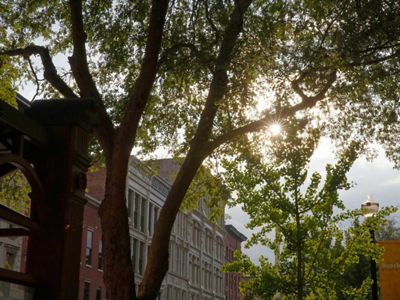
In Louisville, we have:
- Planted more than 1,000 new trees throughout the Green Heart community.
- Built the capacity of local community-based organizations to plant and care for their local forest through grants that support staff hiring, training, and large equipment purchases including a truck and watering trailer.
- Supported hundreds of volunteers and community members to take park in re-greening their community through hands-on training and planting days between January and March of 2020.
- Installed four large vegetative buffers designed to remove air pollution along Interstate 264.
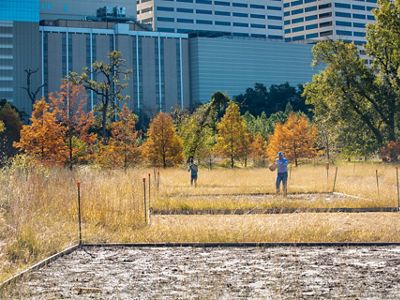
In Houston, we have:
- Participated in the development of the Resilient Houston and Houston Climate Action Plan to better guide the city and ensure the inclusion of effective nature-based solutions.
- Activated 1,350 volunteers for the 2020 City Nature Challenge, which calls on community scientists to observe and document native species across the region during a four-day window of time; the Houston-Galveston team came in first out of more than 200 cities participating globally and set a new record for the number of species recorded.
- Coordinated 84 volunteers to collect data for a national heat mapping campaign that will ultimately help inform where green interventions and nature-based solutions will have the most impact in Houston.
- Harvested hundreds of pounds of native seed for the restoration of 50 acres of prairieland as part of the Memorial Park Land Bridge Project—a first-of-its kind project for the area that will create a living bridge for humans and wildlife, connecting the north and south portions of Memorial Park safely—and four acres of native prairie at a new, nature-rich preschool in the Alief Neighborhood of southwest Houston.
- Began developing the Greening Gulfton Master Plan, the first-ever neighborhood-focused climate adaptation, human health, biodiversity master plan for a Houston neighborhood.
Through this on-the-ground work, TNC and Lowe’s aim to help local leaders and volunteers reimagine greener communities and more resilient, thriving cities that can better withstand our changing climate. This effort is keeping diverse and often underserved communities safe and healthy while helping people everywhere love where they live today, tomorrow, and long into the future.
